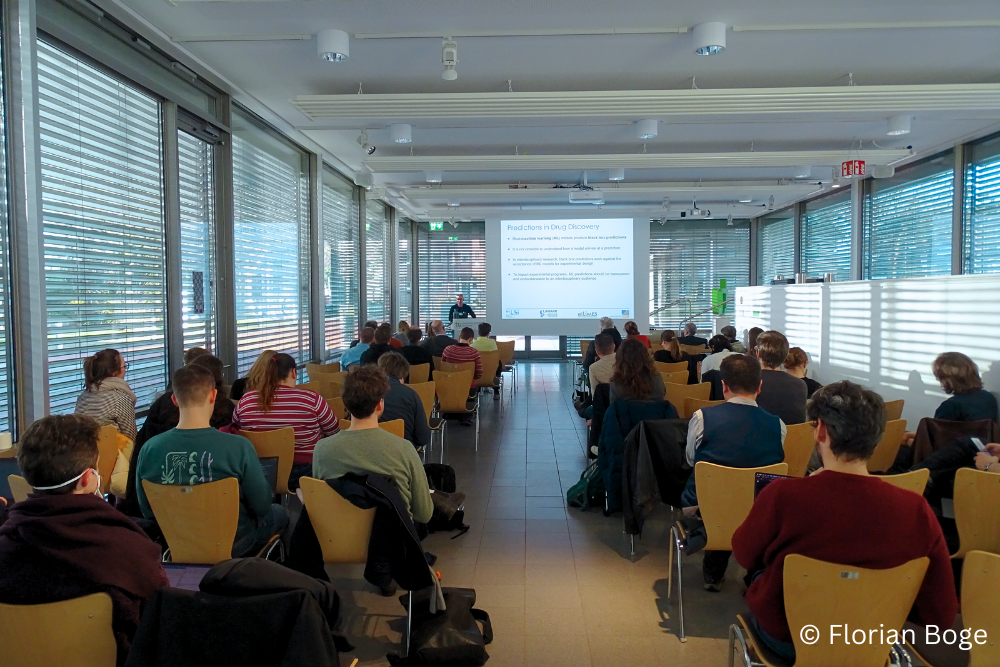
The rapid development of Artificial Intelligence (AI) raises numerous questions, especially in the context of its application in scientific research. To explore these questions, leading scientists and philosophers working on fundamental tasks and problems related to the application of Machine Learning (ML) in science met at the Technical University of Dortmund.
The workshop entitled “Epistomological Issues of Machine Learning” took place from February 27 to 28 and was dedicated to the interdisciplinary field of tension between science and Artificial Intelligence. Among the numerous aspects covered in the presentations, the following topics were of importance: key problems in identifying true discoveries and stable predictions by ML systems, core concepts of “explanation” in the field of eXplainable AI (XAI) and their relation to philosophical theories of understanding and explanation, as well as current limits of predictive power and the connection between ML and traditional scientific methods for prediction and discovery.
In addition to other national and international researchers, Lamarr PIs Prof. Dr. Eva Schmidt, Prof. Dr. Jürgen Bajorath and Prof. Dr. Dr. Wolfgang Rhode presented their research findings and provided insights into their respective fields of research – trustworthy AI, life sciences and physics.
Prof. Dr. Eva Schmidt spoke about the importance of decisions in artificially intelligent systems and their understanding, while Prof. Dr. Jürgen Bajorath gave insights into explainable machine learning in the field of drug research. Prof. Dr. Dr. Wolfgang Rhode shed light on the role of ML in gaining knowledge in physics.
The workshop also marked the start of the DFG-funded Emmy Noether Group UDNN: Scientific Understanding and Deep Neural Networks. It was organized in collaboration with the Lamarr Institute for Machine Learning and Artificial Intelligence and co-funded by the Faculty of Human Sciences and Theology at TU Dortmund University.
Further information:
Program booklet with abstracts of the individual lectures: https://udnn.tu-dortmund.de/wp-content/uploads/2024/02/BookletEpistIssuesMLSci.pdf